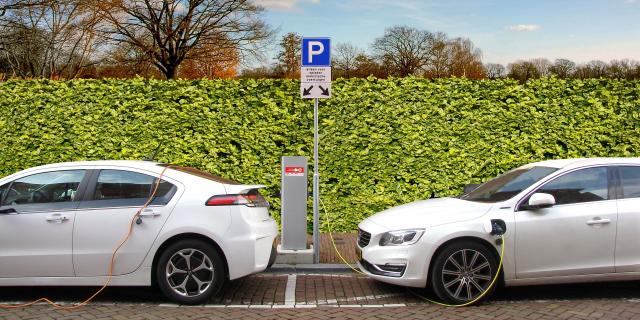This article is correct as of 22 June 2022, please be aware that prices and costs quoted in this article may have changed since publication.
Ever since electric cars hit the mainstream over a decade ago, they’ve been held high as a way to reduce your motoring costs to practically zero. Of course, that’s an exaggeration – we all know there’s no such thing as a free lunch – but it’s true that for the last few years going electric has been a great way to reduce your ongoing running costs.
But does that still hold true in 2022, with the price of energy hitting record highs and the cost of living increasing in general? Read on to find out – or click here to read some more common electric car myths debunked.
How much does it cost to buy an electric car?
The first cost of any car is its purchase price, and here electric vehicles (EVs) don’t actually hold up too well. The cheapest EV on sale today that we’d consider usable every day is more than £20,000 – much higher than the cheapest petrol car, which is around half that cost.
A government grant – the Plug-in Car Grant – was formerly available, but this was scrapped in June 2022 and now private motorists must pay the whole cost of their car, though there are still some benefits available for certain wheelchair-accessible vehicles.
However, it’s worth noting that this price difference may not be so startling on monthly payments. Electric vehicles tend to hold their value very well, which leads to lower leasing or PCP costs. You’ll still pay more than you would for a comparable petrol or diesel car, but the gap is rather narrower.
How much does it cost to charge an electric car?
This is a difficult cost to measure because it depends on so many factors, for example if you are charging your car at home or in public. EDF Energy provide a great map of charging points across the UK – view it here.
Charging at home
Charging an electric car at home can be a cheap option but you may still have more options to make it even cheaper. For example, despite the meteoric rise in energy costs of late, some companies do still offer dual-rate tariffs that can give you low-cost energy overnight – perfect for topping up your electric car while you sleep.
In a pinch you can charge up using a regular three-pin plug socket, but if you’re going to be doing that regularly it’s recommended you have an EV charging point installed. These top up your batteries around twice as fast as a regular plug socket, but they are another cost to shoulder. Some chargers come free with a car purchase – otherwise, you can still claim up to £350 off the cost of a unit thanks to the Electric Vehicle Homecharge scheme.
To find out what it would cost to charge an electric car, take the battery capacity in kilowatt-hours (kWh) and multiply it by your electric unit rate. Add on around 10% of the capacity to allow for losses in charging to heat or battery cooling.
You can then divide that by the average mileage you’re getting per charge to calculate your cost per mile. Here’s an example, based on a Kia e-Niro and a representative standard energy tariff:
Kia e-Niro battery capacity: 64kWh
+ 10%: 70.4kWh
Unit rate: 29.23p/kWh
Real-world range: 250 miles
70.4kWh x 29.23p = £20.58
Average cost per mile: 8.2p
Of course your mileage may vary so this is only a guide and not a specific cost guarantee.
Public charging

Charging up in public can be much more expensive than at home – you’re paying for both convenience and for speed. Rapid chargers typically charge at least 5x as fast as a home charger and in some cases can fill up even the largest batteries in as little as 20 minutes.
The RAC reports that, as of May 2022, the average price of public rapid charging had increased by 21% to an average of 44.55p per kWh. That means the cost of charging the Kia e-Niro (above) from empty to full would be around £31.36 – making for an average cost of 12.5p per mile.
Even public charging works out cheaper than a petrol or diesel car, though, as with current fuel prices the average petrol car costs around 19p per mile to fuel.
Do note, however, that some public charging services also require a monthly subscription.
How much does it cost to tax an electric car?
Zero, happily. Whereas petrol and diesel cars attract a yearly £165 tax bill, plus a first-year tax based on their CO2 emissions and a hefty surcharge for vehicles over £40,000, electric vehicles are exempt from all of these as they emit zero tailpipe emissions. You can see a breakdown of all these costs on the GOV.UK website here.
It’s not just private drivers who can save; if you pay tax on your company car, the value of this tax is reduced if the car has low CO2 emissions. You can check, update or estimate your company car tax using the GOV.UK website here.
How much does it cost to insure an electric car?
As with all insurance policies, the cost is dependent on a variety of factors, including your personal details and which car you are looking to insure. For an accurate insurance cost and to try to find the cheapest electric car insurance deal for you, compare quotes from a variety of insurance providers, which you can do right here at mustard.co.uk. Compare electric car insurance now.
How much does it cost to service an electric car?
Electric cars have far fewer moving parts than a petrol or diesel car and so in theory much less to wear out. They also tend to be kinder to their tyres and brakes, with regenerative braking taking much of the pressure away from these parts – and of course, you won’t find consumables like engine oil or transmission fluid to replace. Neither will you need to budget for things like replacement clutches or cambelts.
However, the parts for electric cars do tend to be more expensive due to their rarity.
As with insurance, as electric cars become more popular, we may see the price of servicing drop, as well as an increase in third-party garages that can work on your EV besides the main dealer.
Some electric cars offer a separate warranty for the battery, intended to protect you against a loss of capacity and the burden of shouldering a pricey replacement. These tend to be much longer than the regular warranty, usually around eight years of cover.
Other electric car costs
If you regularly drive in London, an electric car could help you reduce costs as it’s exempt from the London congestion charge as well as the Ultra-Low Emission Zone. Those two costs alone could save you up to £25 daily.
Many councils in big cities are considering similar low emissions zones, so an electric car could well save you a lot of money in the future.
Will an electric car save me money?
It depends what it’s replacing. If you’re the type of person who leases or finances a new car every few years, then it might be worth switching to an EV for your next update and comparing the prices at the time to work out which will be more beneficial for your financial situation.
If you run an older car or typically buy low-priced used vehicles, then the additional purchase price of an EV could wipe out any running costs savings.
If you’ve already taken the plunge and bought an EV and you need to buy an insurance policy, the good news is that you’re already in the right place.








